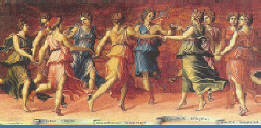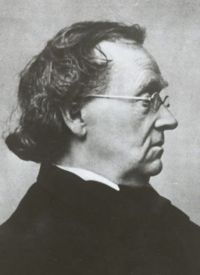|
|
Mörike came from a large, professional family in Ludwigsburg. After the death of his father
in 1817, he was taken into the house of his uncle who placed him in an unhappy education
in Urach. He sought refuge in the pastoral landscape, had a youthful love affair with his
cousin, Klärchen Neuffer, and made lifelong friends with Wilhelm Hartlaub and the poet
Wilhelm Waiblinger who encouraged his reading of Goethe and other great poets.
After schooling he attended theological college but, after poor academic results, took
refuge with a friend, Ludwig Amandus Bauer, in a fantasy world of poetry. He concluded
his studies in 1826 and undertook several curacies finally reconciling himself to his
profession but not without the desire to earn a living through his writing. He was
briefly engaged to Luise Rau and finally became minister in the too demanding parish
of Cleversulzbach. He sought early retirement at age 39 on psychological grounds
whereupon he was able to devote his energies, on moving to Bad Mergentheim, more
fully to poetry expunged of the political content prevalent in the works of his
contemporaries.
In 1845, he married Margarethe Speeth, by whom he was to have two daughters. They lived
in straitened circumstances until in 1851 he moved to Stuttgart following appointment as
literature teacher. His creativity revived and in 1852 he received an honorary doctorate
and in 1856 was appointed professor at Tübingen University amongst other honours.
The stresses of family life led to separation in 1867, however.
Mörike was a leading lyrical poet of pastoral themes investing his poetry with feelings
derived from a life of love and longing, happiness and sadness.
|

